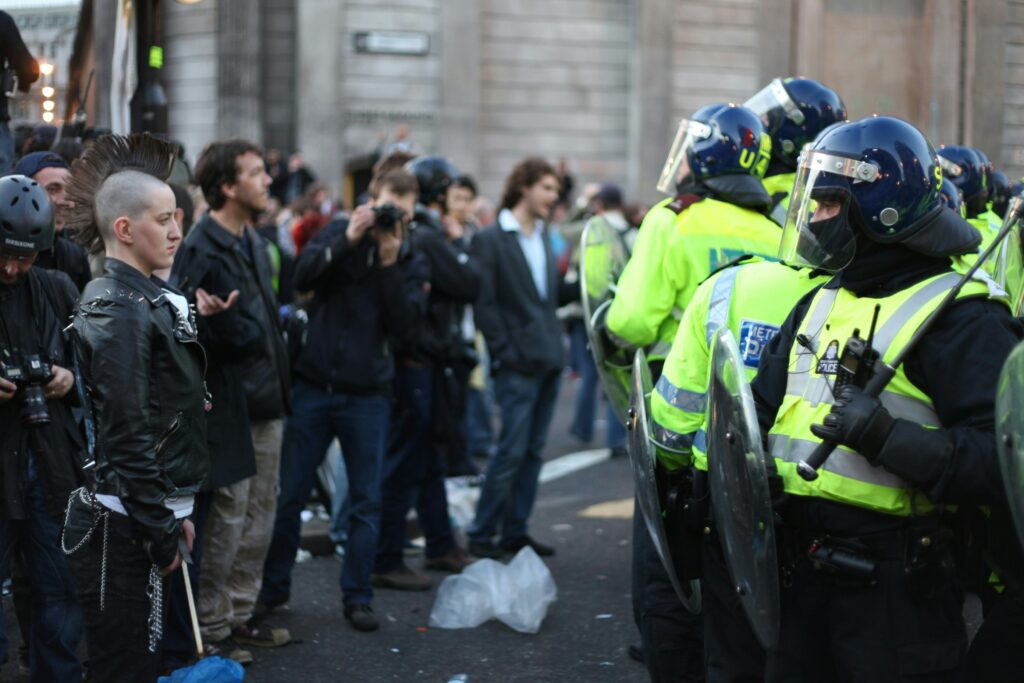
We live in a noisy time. The combination of national polarization, political controversy, and social media—the fact that literally everyone has a public platform now—encourages everyone to have a stake, an opinion, and to express it vociferously, even apocalyptically.
I don’t say much about politics, at least not publicly. I’ve been asked, by people on both sides of the proverbial aisle, why I don’t say more—why I don’t “take a stand” for MAGA, or against it, or on some other hot-button issue.
What am I afraid of? Rejection? Losing my job? (That’s funny, since I’m retiring in 2 weeks. But just for the record, I’ve never been afraid of losing my job. I have confronted people up the chain of command—all the way to the top—when I thought that was called for, and I still have my job. :-) )
So why don’t I speak up more? That’s a good question, and the answer is multi-faceted, touching on personal history, political philosophy, and theology. I think it would be worthwhile, as an exercise in integrating these and other disciplines, to work through an answer.
That means that I’m going to be talking about myself for a few posts. I don’t normally do that, either; I’d much rather lay the Word out there and trust the Holy Spirit’s work in believers, and unbelievers, to make it profitable, even in ways I’m not necessarily intending.
But for better or worse, here goes.
First, personal history.
- All my life I’ve had a problem with my mouth. My late parents and my older sisters could bear abundant testimony to that, as could any number of teachers, fellow students, former students, and colleagues. I haven’t typically been driven by malice; usually it’s just an attempt to be funny. But I have had enough of shooting off my mouth and then seeing the hurt on the face of someone I cared about. And I see my friends, on the left and on the right, posting hurtful things, often with actual malice aforethought, and I just don’t want any part of it.
Grace. Mercy. Peace. That’s what I’d like my words to sow.
- Shortly after our two daughters were born, I decided to get certified as an EMT, so I’d know what to do in an emergency. A key part of that training was the importance of surveying the scene: you don’t just rush into a situation (hurry! lives are at stake!!!!) without taking some time to see whether there’s ongoing danger, and if so, where it is. If you don’t do that, you’ll likely become just another person who needs medical attention, another person some other responder is going to have to expend the effort to rescue. Just jumping into an emergency situation isn’t helping anybody.
- A few years later I got certified as a security guard by the South Carolina State Law Enforcement Division (SLED) so that I would be more reliable as a concealed carrier of a firearm. With that certification I was then approved to carry on school and church property. (South Carolina doesn’t allow carrying there without board approval.) Again, a key part of that training is the importance of staying calm in a chaotic situation; if there’s a shooter in a church sanctuary, and everybody’s running in all directions, and there’s loud noise and the smell of gunpowder in the air, you don’t want to be firing wildly in random directions; you want to observe, determine the threat, determine whether you’re in a position to neutralize the threat (from your angle, is there an innocent person in the line of fire? even beyond the target?), and only then take action. You’re responsible for the final location of every bullet that leaves your weapon, and everything it touches along the way.
We’re responsible, too, for every word we speak. Words can do great damage, often even greater damage than bullets can. We will give account to the one who knows all things (Mt 12.36): Jesus himself said that.
In the current culture, everyone’s encouraged to shoot his mouth off in public forums. Here’s the outrage of the day; what side do you have to be on, based on your vote in the last election? Well, then, assume that position; shoot first, ask questions later. Could the situation be more complicated than it appears at first glance? Who cares? Fire away!
I see that kind of behavior every day—and yes, on both sides.*
I’m not gonna have it.
Next time, we’ll begin looking at the socio-political environment.
* And no, I’m not engaging in “both-sidesism.” That’s saying, “The other side does this bad thing, so my side can do it too.” That’s not what I’m saying; I’m rejecting them both and refusing to do the bad thing.
Part 2: Political | Part 3: Panic | Part 4: Peace 1 | Part 5: Peace 2
Photo by Jonathan Harrison on Unsplash

